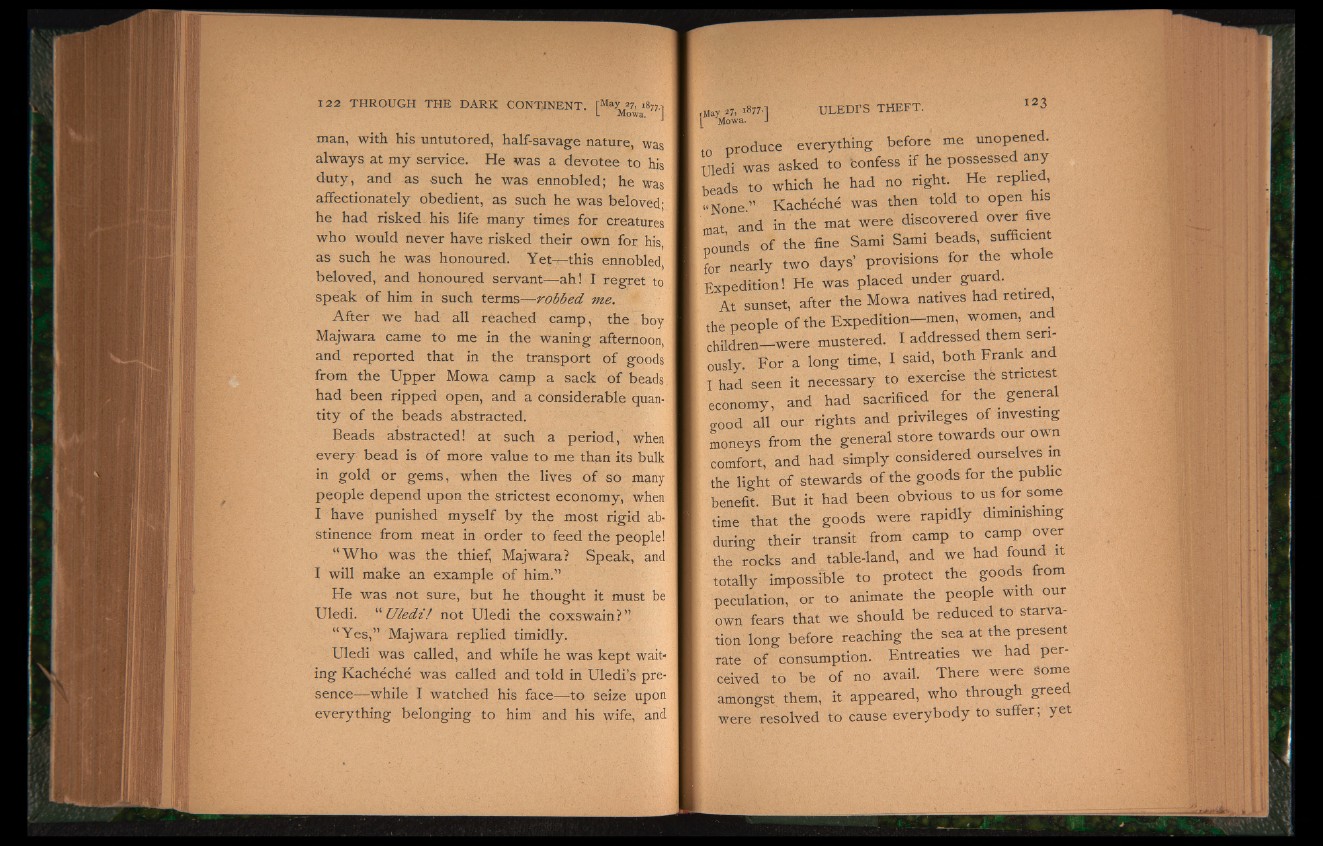
man, with his untutored, half-savage nature, was
always at my service. He was a devotee to his
duty, and as such he was ennobled; he was
affectionately obedient, as such he was beloved1
he had risked his life many times for creatures
who would never have risked their own for his,
as such he was honoured. Yet-r-this ennobled
beloved, and honoured servant— ah! I regret to
speak of him in such terms— robbed me.
After we had all reached camp, the boy
Majwara came to me in the waning afternoon,
and reported that in the transport of goods
from the Upper Mowa camp a sack of beads
had been ripped open, and a considerable quantity
of the beads abstracted.
Beads abstracted! at such a period, when
every bead is of more value to me than its bulk
in gold or gems, when the lives of so many
people depend upon the strictest economy, when
I have punished myself by the most rigid abstinence
from meat in order to feed the people!
“Who was the thief, Majwara? Speak, and
I will make an example of him.”
He was not sure, but he thought it must be
Uledi. “ U ledi! not Uledi the coxswain?”
“ Yes,” Majwara replied timidly,
Uledi was called, and while he was kept wait"
ing Kacheche was called and told in Uledi’s presence—
while I watched his face— to seize upon
everything belonging to him and his wife, and
rMay 27i 18771
I M ow a .
to produce everything before me unopened.
Uledi was asked to ‘confess if he possessed any
beads to which he had no right. He replied,
“None ” Kacheche was then told to open his
tnat and in the mat were discovered over five
pounds of the fine Sami Sami beads, sufficient
f o r nearly two days’ provisions for the who
Expedition! He was placed under guard.
At sunset, after the Mowa natives had retired,
the people of the Expedition-men, women, and
children—were mustered. I addressed them seriously.
For a long time, I said, both Frank and
I had seen it necessary to exercise the strictest
economy, and had sacrificed for the genera
good all our rights and privileges of investing
moneys from the general store towards our own
comfort, and had simply considered ourselves in
the light of stewards of the goods for the pub ic
benefit. But it had been obvious to us for some
time that the goods were rapidly diminishing
during their transit from camp to camp over
the rocks and table-land, and we had found it
totally impossible to protect the goods rom
peculation, or to animate the people wit o
own fears that we should be reduced to starvation
long before reaching the sea at the present
rate of consumption. Entreaties we ha per
ceived to be of no avail. There were Some
amongst them, it appeared, who through gree
were resolved to cause everybody to suffer; yet